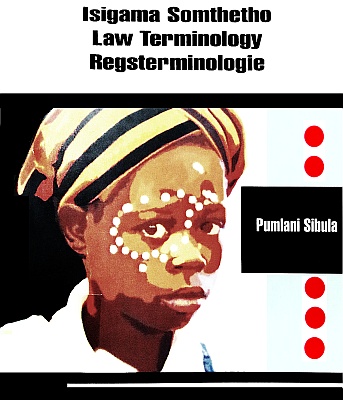by Chantelle | May 13, 2015 | Strategic Legal Writing
Dear Students
In feedback received from last year, you expressed an interest to see updates on the Legal Writing blog of “live” trials. I can imagine that the Oscar trial sparked a lot of interest (and debate!) in this regard, it being the first South African criminal trial that was broadcasted live. However, except for the Oscar and Dewani trials, not many trials are broadcasted “live” in South Africa. We will therefore borrow from various other jurisdictions to give you a taste of trial lawyering. (more…)
by Chantelle | May 11, 2015 | Strategic Legal Writing

Law terminology / lsigama somthetho / Regsterminologie [click to download]
PREFACE
This trilingual list on Law Studies terminology aims to promote isiXhosa and to support Xhosa-speaking students who sometimes struggle with difficult Law terms. The terminology list, therefore, is an initiative to support and assist these students. It aims to widen the scope of understanding, so that these students are afforded the opportunity to learn and understand these Law terms through their mother tongue. One of the direct outcomes of this endeavour is the intention to elevate isiXhosa to the status of a language of learning in higher institutions. This terminology list is also one of the strategies for highlighting the fact that Stellenbosch University is committed to the promotion of isiXhosa, which is one of the three official languages in the Western Cape. (more…)
by Chantelle | Apr 27, 2015 | Strategic Legal Writing
Over the next several weeks, we will be publishing breakdowns of legal documents explaining each in plain language followed by an example of each document. We are starting the series off with the Letter of Demand.
– Melandie Buitendag
LETTER OF DEMAND – BACKGROUND (more…)
by Chantelle | Apr 20, 2015 | Strategic Legal Writing
Dear Students,
Remember the following points with regard to the preparation, general outline and set up of your Constitutional Law 312 research paper due 28 April 2015:
Scope
The major assignment must be 8 typed pages in length, excluding the cover page and bibliography.
Use:
- 12 pt, Arial font;
- 1,5 line spacing; and
- standard margins.
(more…)

by Chantelle | Apr 17, 2015 | Strategic Legal Writing
For the full sized image, click here.
– Piet Kotzé
by Chantelle | Apr 16, 2015 | Strategic Legal Writing
Defining coherence and flow
When you have coherence in your assignment, it means that all the parts fit together well. Flow refers to the way that the words and ideas making up the different parts of your assignment, are linked together. Therefore, when you have coherence and flow in your assignment, you move in a logical order or sequence from one topic or idea to another, starting with the argument in the introduction and developing it in each subsequent section until you reach your conclusion. (more…)
by Chantelle | Mar 3, 2015 | Strategic Legal Writing

by Chantelle | Jan 21, 2015 | Strategic Legal Writing
Africa L aw Times invites you to partake in the production of our third issue. Kindly send you articles by the 27th Day of January 2015 for consideration and subsequent publication in this month’s issue.
aw Times invites you to partake in the production of our third issue. Kindly send you articles by the 27th Day of January 2015 for consideration and subsequent publication in this month’s issue.
Send your submissions to africalawtimes@gmail.com including a quick bio about yourself and if possible an image preview of yourself cut down the image sizes to 600pix on the widest edge.
We look forward to receiving your submissions.
Take note that we require original work; however, where an author proffers parts of another author’s work, ensure that consent is sought and acknowledgements are made to the author of the borrowed work. Plagiarism is HIGHLY DISCOURAGED.
Kind regards,
Ombo D. Malumbe
Communications Director: Africa Law Times
omboduncan@africalawtimes.com / +254 (0) 724 026 355
by Chantelle | Nov 4, 2014 | Strategic Legal Writing
 In this recent decision, the court considered the placement of a comma in a settlement agreement.
In this recent decision, the court considered the placement of a comma in a settlement agreement.
Erie Boulevard Hydropower v. State of New York
From the settlement agreement:
The intent and purpose of the agreement being so to operate the Hinckley State Reservior [sic] that, after serving the canal uses and purposes, of the State, it may so far as practicable, be fully used for the storage of water and the regulations of the flow of West Canada Creek below the same for the benefit of the power property and riparian lands of [claimant] on West Canada Creek below the Hinckley State Reservior [sic]. Provided, [h]owever, that during periods of extradordinary [sic] or unusual drought, flood or emergency caused by the temporary failure of other sources of water supply for the canal use, . . . the Superintendent of Public Works or other officer . . ., without the payment of any damages to [claimant], . . . may temporarily vary or entirely suspend the operation of th[e] said dam and reservior [sic] as described and laid down in the operating diagram aforesaid during the periods of such extraordinary or unusual drought, flood or emergency caused by the temporary failure of other sources of [water] supply for the canal use . . . . (more…)
by Chantelle | Nov 2, 2014 | Strategic Legal Writing

Steven Pinker – The Sense of Style: The Thinking Person’s Guide to Writing in the 21st Century
Steven Pinker is one of the world’s leading authorities on language and the mind. His popular and highly praised books include The Stuff of Thought, The Blank Slate, Words and Rules, How the Mind Works, and The Language Instinct. The recipient of several major awards for his teaching, books, and scientific research, Pinker is Harvard College Professor and Johnstone Family Professor of Psychology at Harvard University. He also writes frequently for The New York Times, Time, The New Republic, and other magazines – Amazon.com (more…)
by Chantelle | Sep 19, 2014 | Strategic Legal Writing
 The power of Heads of Argument
The power of Heads of Argument
In this article I will briefly address the importance of Heads of Argument and will also guide you in drafting your own. My hope is that you will have a better understanding of what Heads of Argument entail and that you would also feel confident to draft your own, once you have read this article.
I completed my articles at a large firm which was not involved in much Magistrate Court litigation. As a result I can only remember attempting to draft heads of argument once during this time, which proved to be an extremely daunting task. The only heads of argument that I had seen at that stage, were those drafted by Senior Counsel, which were rather lengthy and dealt with complicated legal issues. (more…)
by Chantelle | Aug 25, 2014 | Strategic Legal Writing

MK Osbeck “What is “good legal writing,” and why does it matter?” (2012) 4 Drexel Law Review 417 – 467.
Abstract
Law schools face increasing pressure to improve instruction in practice oriented skills. One of the most important of these skills is legal writing. The existing literature on legal writing contains various rules and suggestions as to how legal writers can improve their writing skills. Yet it lacks an adequate theoretical account of the fundamental nature of good legal writing. As a result, legal writers are left without a solid conceptual framework to ground the individual rules and suggestions. This Article attempts to fill the theoretical void in the literature by offering a systematic analysis of what it is for a legal document to be well written. It starts by examining a foundational conceptual issue, which is what legal writers mean when they say that a legal document is well written. It argues that legal readers judge a document to be well written if the writing helps them make the decisions they need to make in the course of their professional duties. The Article then provides an analysis of the fundamental qualities that enable legal writing to do this, concluding that there are three such qualities: clarity, conciseness, and the ability to appropriately engage the reader. The Article explains why each of these qualities is essential to good legal writing, and it examines the tools good writers use to make their writing clear, concise, and engaging. Lastly, the Article examines what it is that distinguishes the very best writing in the field, arguing that great legal writing is not just writing that is especially clear, concise, and engaging, but is instead writing characterized by a separate quality, elegance, that is aesthetic in nature. The Article then goes on to explore what it is that makes such writing elegant, and whether it is desirable for legal writers to strive for elegance in their own writing. The Article concludes by briefly considering the pedagogical implications of the analysis discussed in the previous sections.
Download full article here.
Page 3 of 6«12345...»Last »



 aw Times invites you to partake in the production of our third issue. Kindly send you articles by the 27th Day of January 2015 for consideration and subsequent publication in this month’s issue.
aw Times invites you to partake in the production of our third issue. Kindly send you articles by the 27th Day of January 2015 for consideration and subsequent publication in this month’s issue. In this recent decision, the court considered the placement of a comma in a settlement agreement.
In this recent decision, the court considered the placement of a comma in a settlement agreement.
 The power of Heads of Argument
The power of Heads of Argument